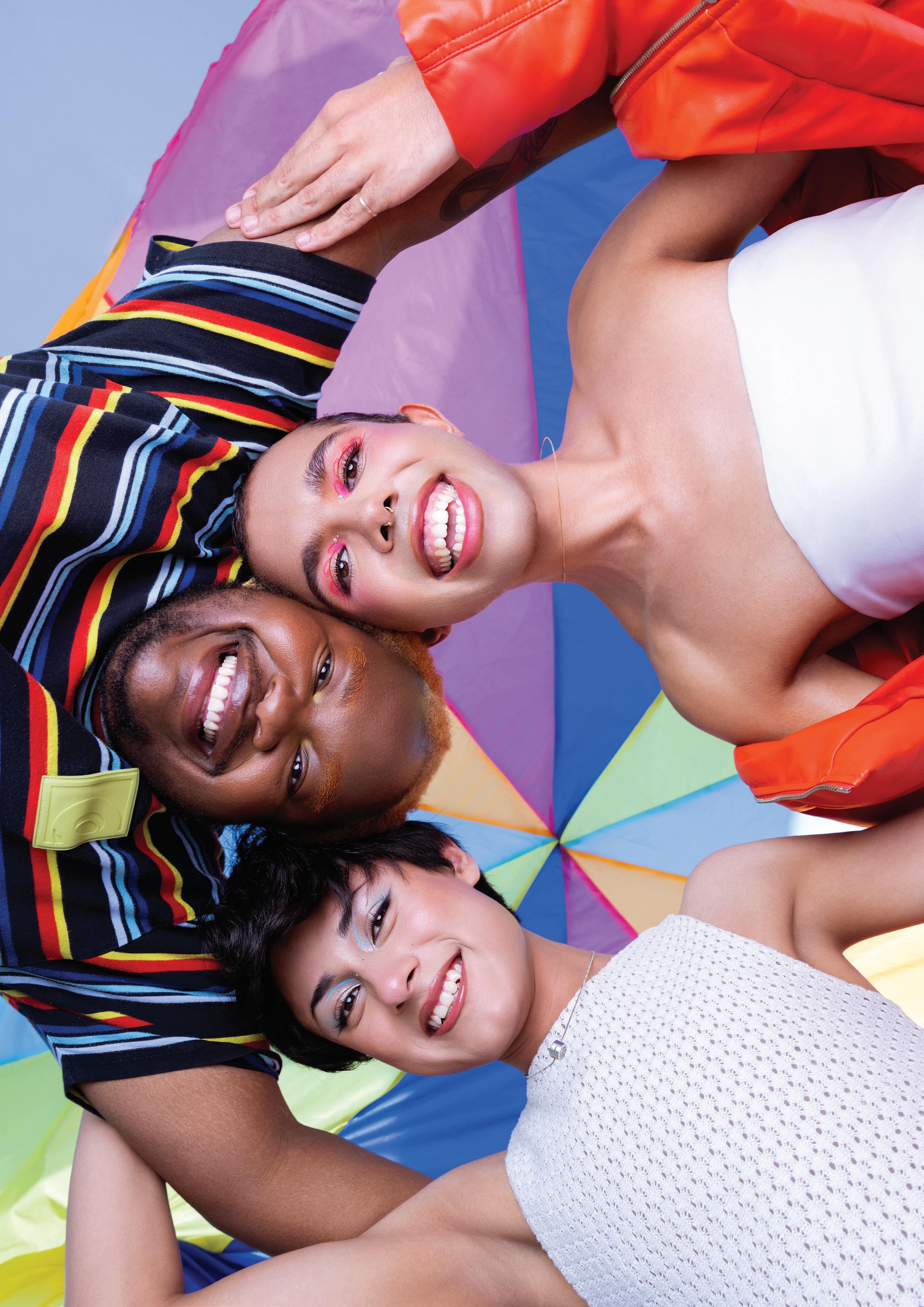
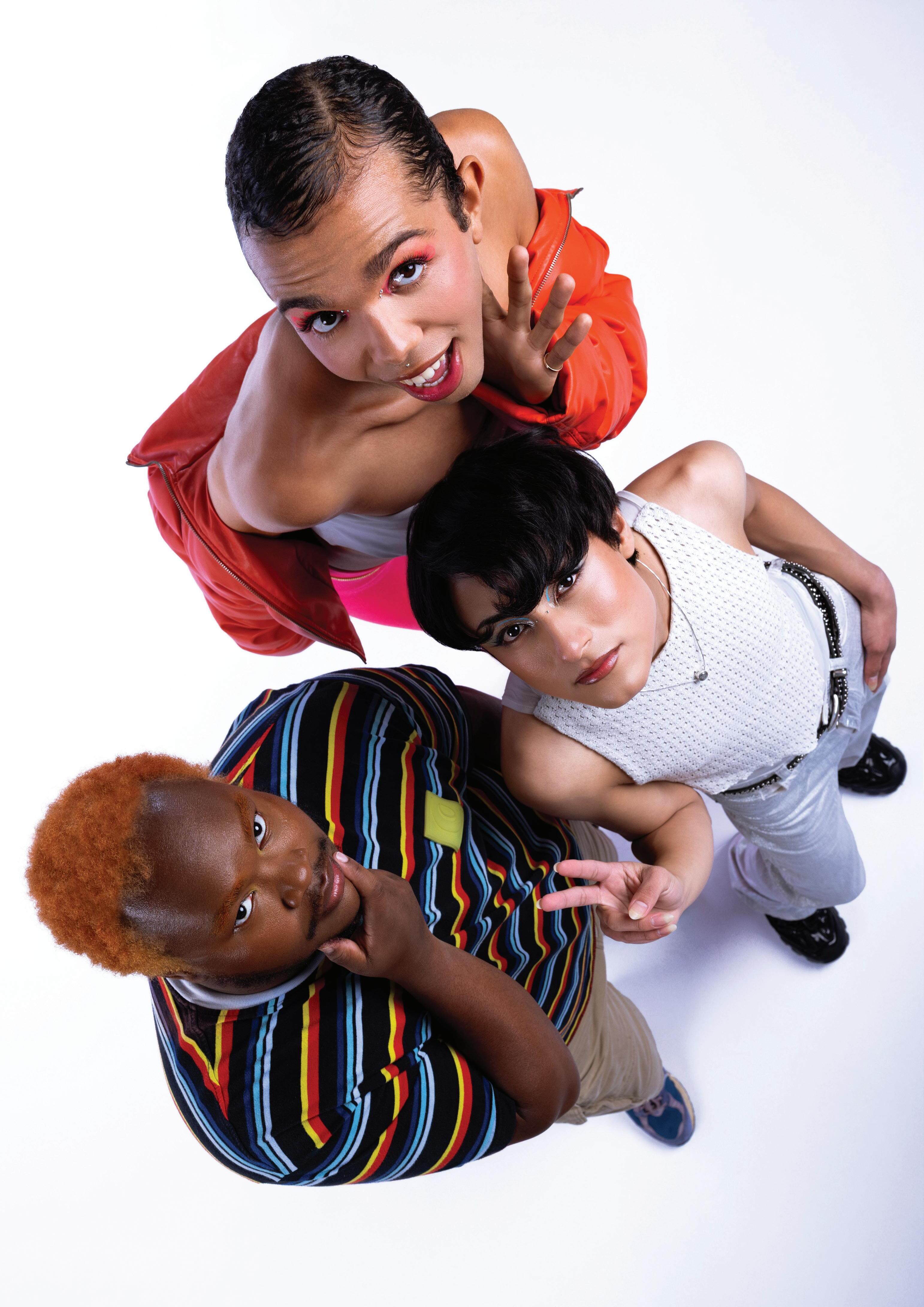
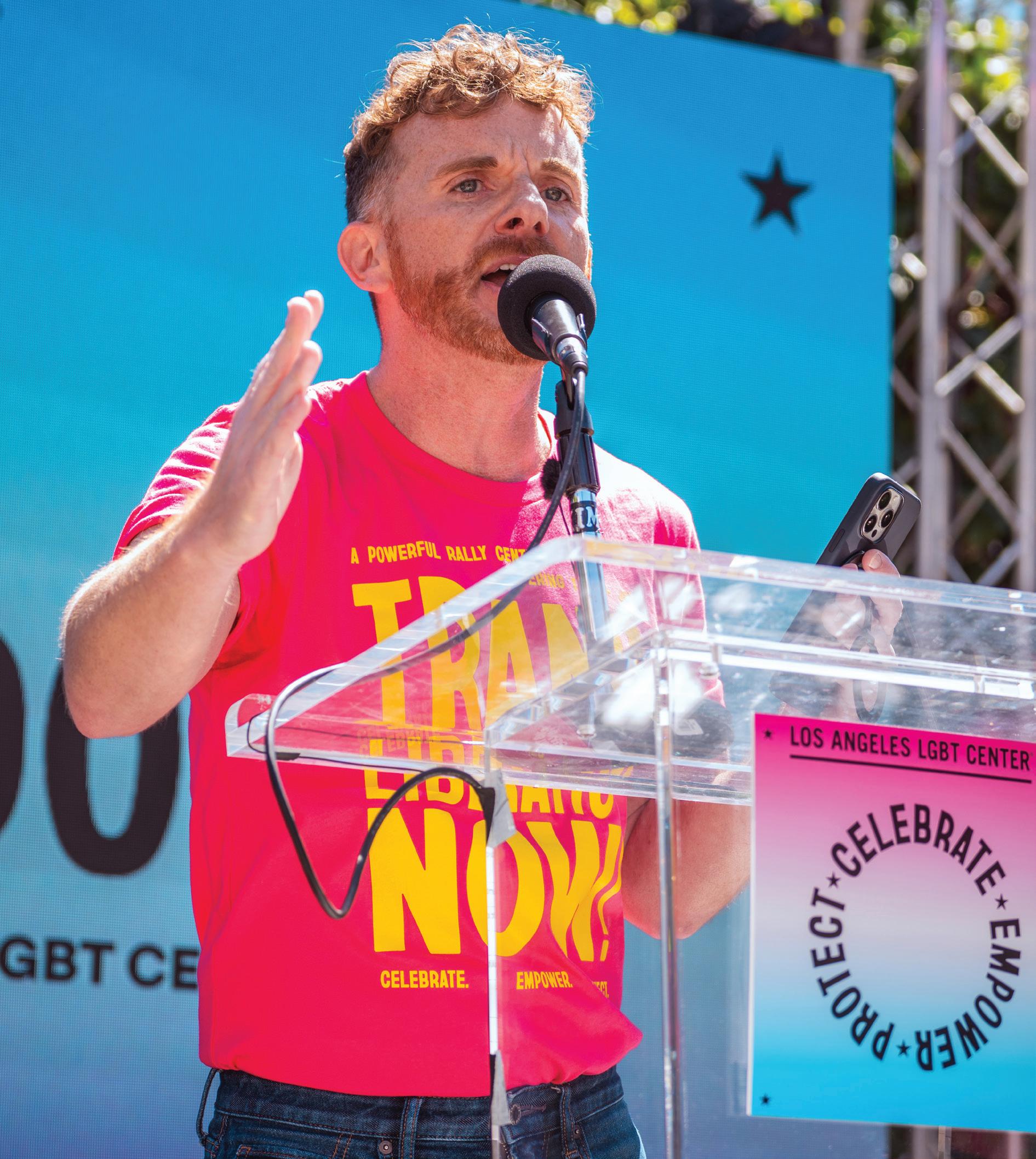




Our community has always known that liberation is about more than survival—it is our ability to live fully, openly, and without fear. This vision has guided the work of the Los Angeles LGBT Center since our founding, and it remains just as important today as it was in 1969.
Across the country, harmful policies and rhetoric are creating fear and uncertainty for too many in our community. But these are not the truths that define our movement. While it is true that we must confront any attempt to strip away our access to healthcare, undermine our families, and target the most vulnerable among us, resistance is not where our work ends.
Each and every day at the Center, I am reminded of the bigger picture. We see it in a young graduate who dreams of a brighter future, in an elder who is cared for with the dignity they deserve, and in every person who walks through our
doors seeking comprehensive care and belonging.
The promise of our work is simple and constant: You are not alone. The Center will always be here, offering health care, housing, legal services, advocacy, and a safe place to build community. And we will keep fighting until every LGBTQ+ person can live authentically with dignity and joy.
These are not easy times, but I have no doubt about our ability to achieve our founders’ vision. Together, with true liberation as our north star, your Center will continue to build the world every member of our community deserves.

Joe Hollendoner, MSW Chief Executive Officer
Oliver DelGado, Chief Marketing & Communications Officer
Derek González
Creative Director
Kyle Pavia
Senior Digital Communications Manager
George Skinner
Senior Production Manager
Andrea Rodriguez
Project Manager
Reid Nakamura
Staff Writer
Ang Cruz
Contributing Writers
Melissa Lewis
Nico Lang
Terra Russell-Slavin
Lauren Seebold
Contributing Photographers
Kane C. Andrade, @kanesies
Jordyn Doyel, @jdoyelcreative
Josh La Cour, @joshlacour
Maxwell Poth, @maxwellpoth
Dorian "Scottie" Wilson, @eyeofscottie
Zev Rose Woolley, @mammothsprite
Tess Ayers
LuAnn Boylan
Alex Cohen*
Kim Culmone
Sarah Dusseault
Susan Feniger, Co-Chair
Alfred Fraijo, Jr., Secretary
Jordan Held
Annie Imhoff
Marki J. Knox, M.D.
Shawn Kravich*
James McGruder
Carlos Medina
Estevan Montemayor
Lucinda Moorhead
Kimberly Nao
Andy Ortiz
Jayzen Patria
Frank D. Pond, Co-Chair
Francisco Ramos
Rosalie Valdez-Vitale*
Amy Gordon Yanow, Treasurer
Social Media Manager *New Board Members as of 2025
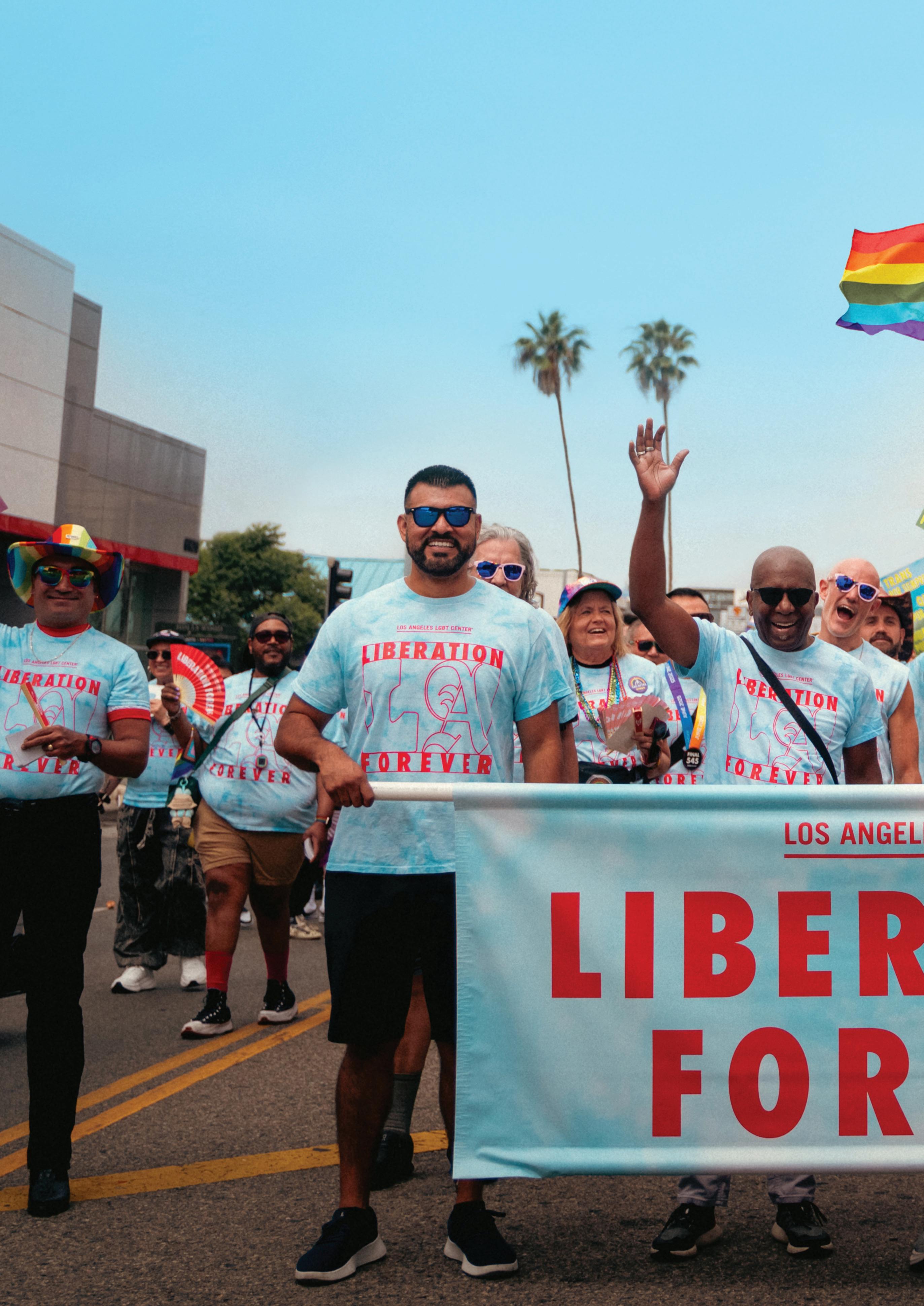
Even in the most challenging times, our community has found moments of freedom, care, and joy that keep us going. Each and every day, we find light in one another. The stories in this issue capture what it means to live liberated—today, tomorrow, and for generations to come.
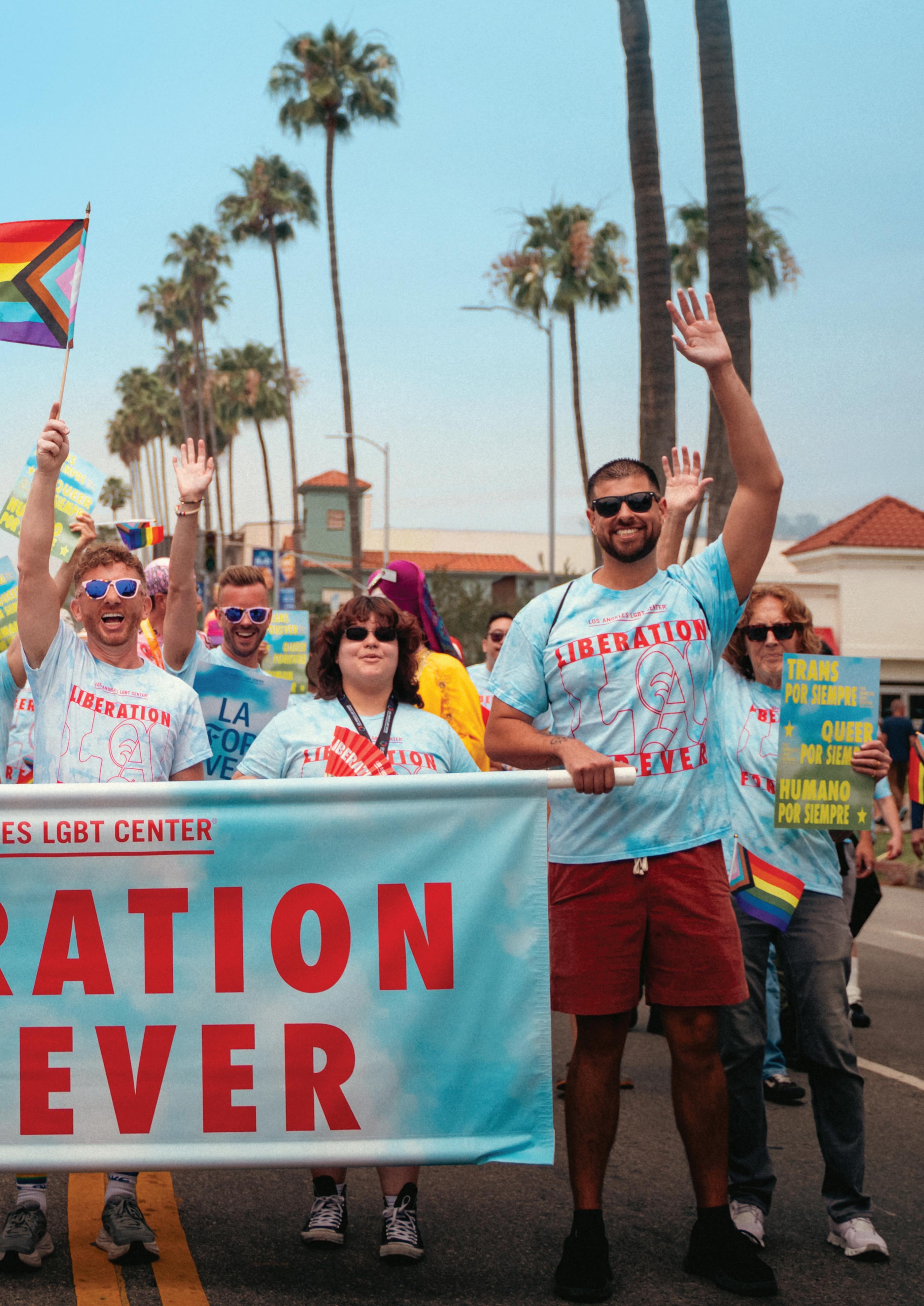
by Jordyn
by
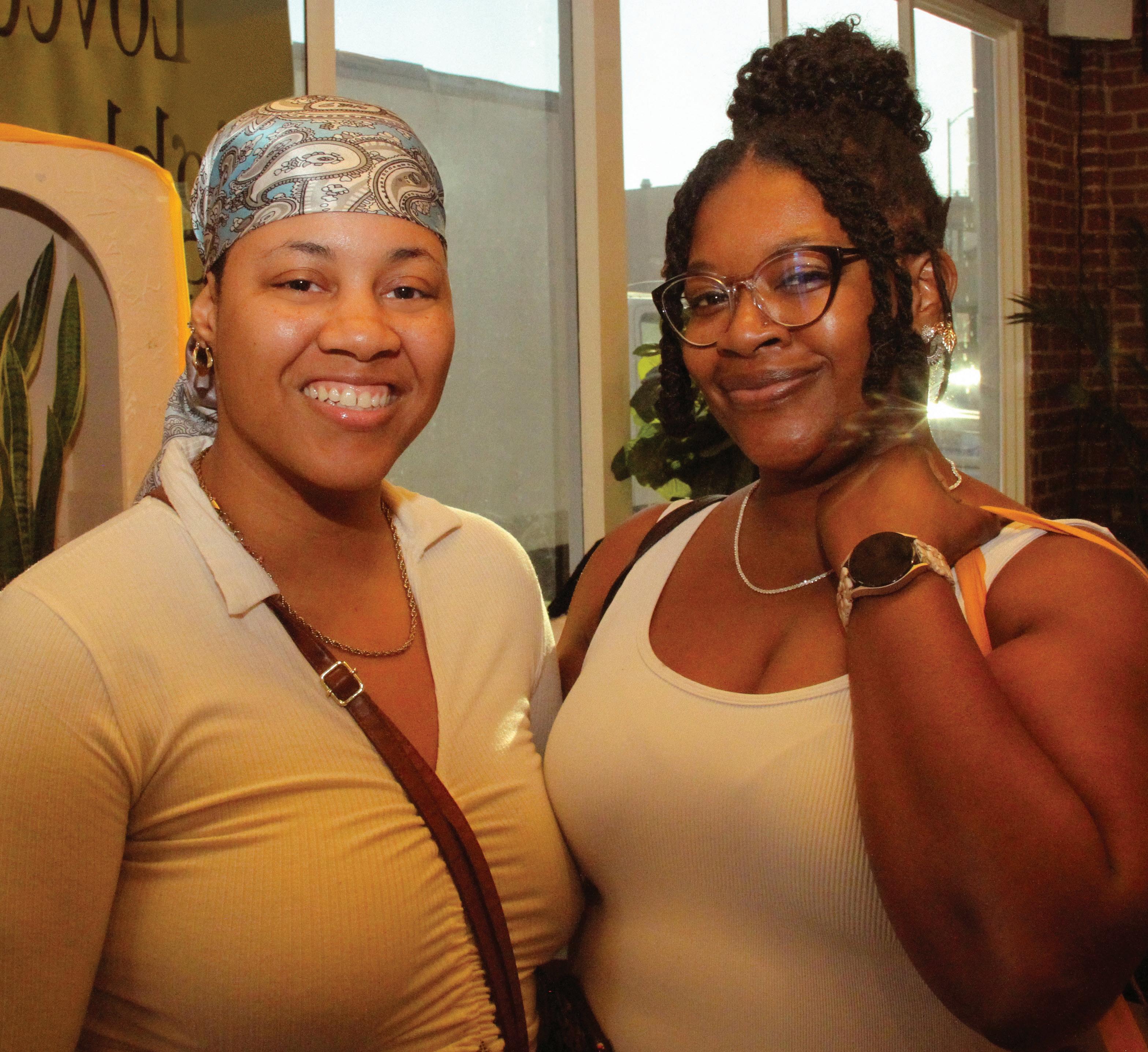
Service to our community lies at the heart of the Center’s mission. From its earliest days, our movement was built on two prongs: advocacy for the marginalized through protests, marches, and demonstrations, and care for those of us who need it most. History often remembers the loud moments of disruption, but it’s the quiet moments of care that create lasting change.
The urgency of that care was made clear in the first weeks of 2025, when Los Angeles was devastated by two of the deadliest firestorms in the county’s history. After the fires left thousands of residents displaced, the Center community showed what love can do in times of crisis. Planned in under 48 hours, a relief drive hosted at the Anita May Rosenstein Campus was met with overwhelming generosity: Cars lined up around the block with people eager to donate,
and nearly 100 volunteers came together to sort, pack, and deliver some 20,000 pounds of supplies.
Center staff and clients directly impacted by the fires were able to access clothing, toiletries, food, batteries, diapers, pet supplies, and more. A fleet of vans and personal vehicles made 20 trips to onthe-ground distribution centers, ensuring donations reached the communities that needed them most.
But care extends beyond immediate relief. Support remains critical in the weeks after the onset of the crisis, when our neighbors are still struggling in the aftermath. In the historic African American enclave of Altadena, where the Eaton Fire destroyed thousands of homes and claimed at least 19 lives, the repercussions will be felt for years to come.
In February, with the support of longtime Center advocate Anita May Rosenstein, the Center’s annual Black History Month celebration found a new home in Pasadena— reimagined as a space of rest, reflection, and renewal for Black LGBTQ+ Angelenos affected by the fires. The event, aptly titled Highly Loved, invited participants to slow down and restore through guided meditations, sound baths, and heartfelt dialogue. More than a celebration, Highly Loved became a sanctuary—an intentional space where attendees could pause, breathe deeply, and be embraced by community.
When institutions fail us, our humanity rises to meet the moment. By showing up for one another—helping our neighbors emotionally rebuild and heal—we prove that real change begins with us. Together, we move not just forward, but closer to one another.
Over 40,000 hot meals served to senior clients
2,808 seniors engaged in case management
Nearly 200 low-income LGBTQ+ seniors housed 85+ connection building activities per month
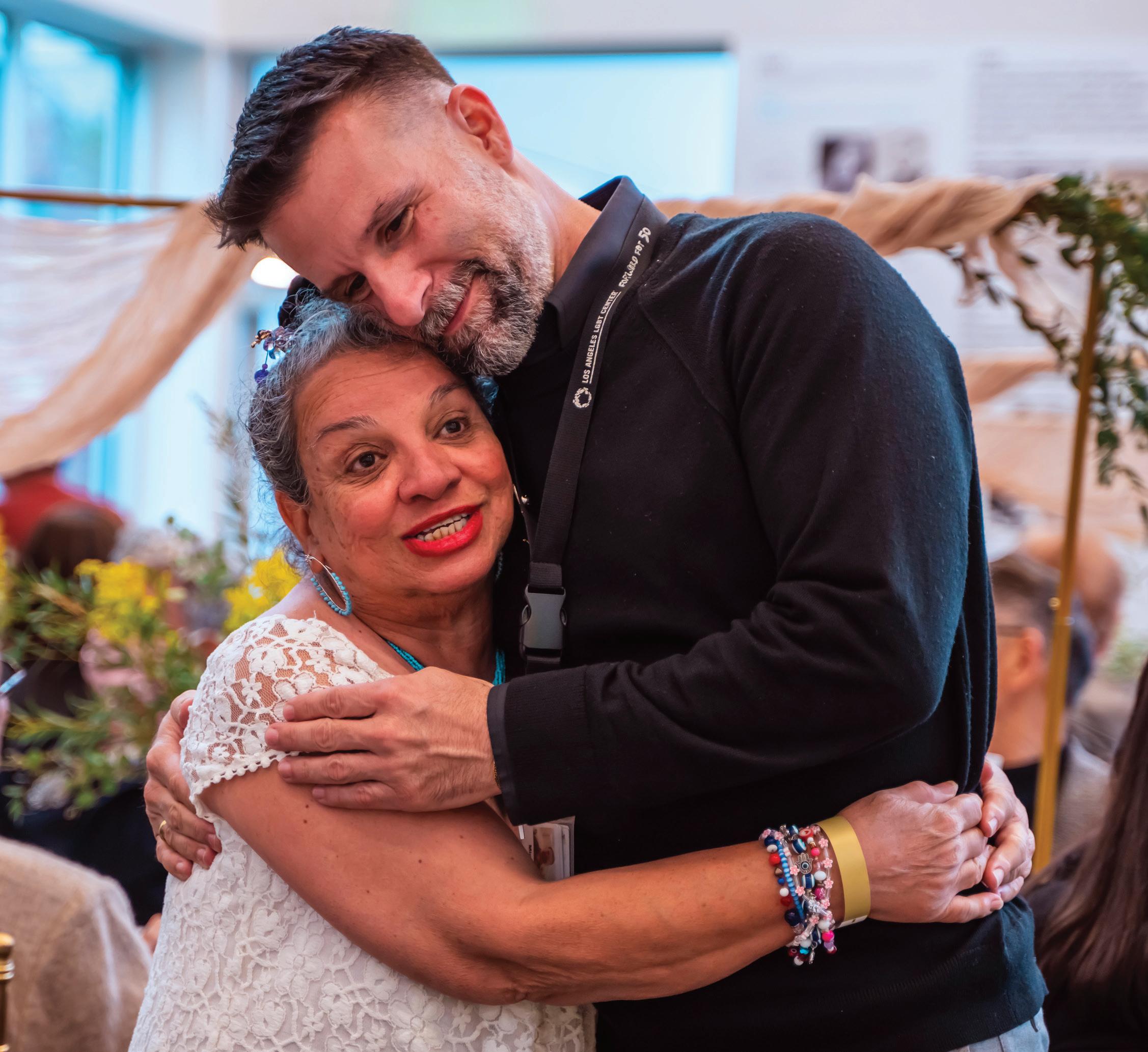
Every weekday, just before noon, the Harry and Jeanette Weinberg Senior Center in Hollywood begins to hum with anticipation. The scent of freshly prepared meals drifts from the kitchen as volunteers tie on aprons, greet familiar faces, and get ready to serve the Center’s most devoted lunchtime crowd: our LGBTQ+ senior clients.
But it’s around the table that the real magic happens. Laughter spills between sips, stories are shared after each bite, and familiar faces brighten at the sight of one another. For many—clients and staff alike—this isn’t just lunch. It’s their daily centering of belonging, a pause in the day that warms the heart as much as the meals themselves.
“Senior lunch is my favorite part of the day,” says Michael McFadden, Assistant Director of Senior Services. “On any given day we have
upwards of 65 to 70 people coming through the doors.”
At the heart of the Center is the Culinary Arts program, where hands-on training meets community care. Each year, up to 100 students—ages 18 to 98—step into the kitchen together, bridging generations over chopping boards and simmering pots. In the commercial kitchen at the Anita May Rosenstein Campus, they stir soups, plate vibrant meals, and share more than recipes— they share stories, laughter, and mentorship that moves in both directions. Every dish is a small work of art, every shared moment a reminder that care, skill, and connection know no age.
Zorra Ortega, a former Culinary Arts student now on the team full-time, makes daily visits to home-bound seniors, delivering hot, fresh
meals right to their doors. But these visits are more than deliveries—they are moments of connection to make every client feel seen and part of the Center’s extended family. “For many of us, the Center is our home away from home,” Ortega says. “It's where we feel cared for, and where we can share our time, energy, and love with those who need it. I wouldn't trade a place like this for anything.”
At the Senior Center, nourishment is never just a service. It’s a shared act of dignity; a daily reminder that every person has a seat at the table.
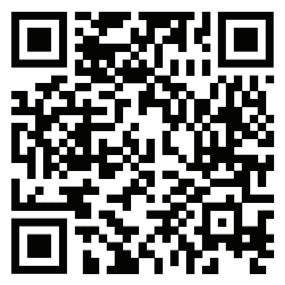
See our seniors in action in a video by Maxwell Poth

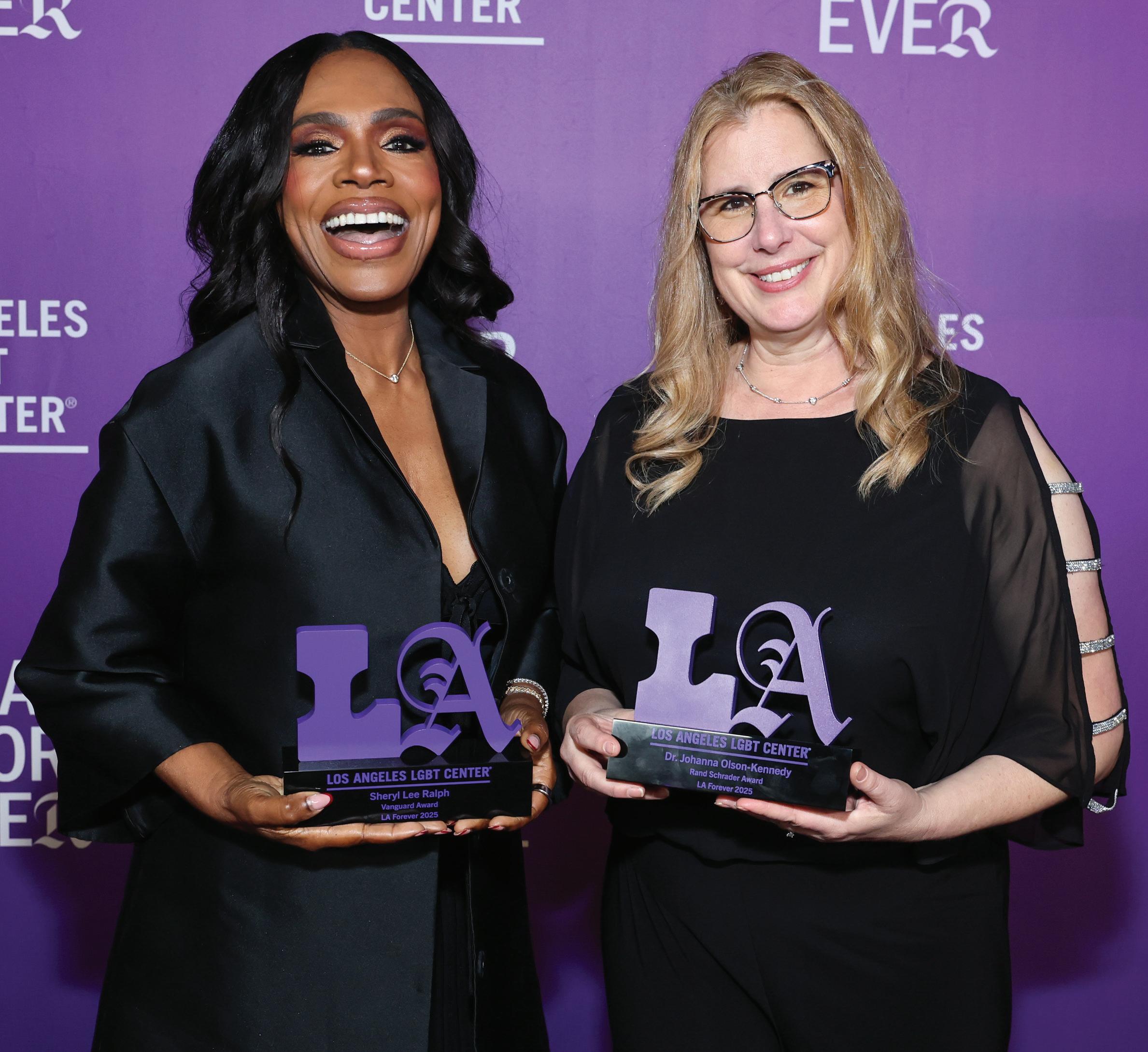
On April 26, the Center and its supporters gathered to celebrate our community and honor two extraordinary champions: Sheryl Lee Ralph, who has stood with our movement since the early days of the AIDS crisis, and Dr. Johanna Olson-Kennedy, a trailblazer in transgender youth healthcare.
The reimagined version of our annual gala was held at the Anita May Rosenstein Campus. Hosted by award-winning comedian and drag performer Bob the Drag Queen, the evening raised nearly $1 million in support of the Center’s lifeline services and programs.
“Tonight, we come together to reaffirm our unwavering commitment to the life-saving services that our community depends on,” said CEO Joe Hollendoner. “The Center has been that light for so many. Healthcare,
shelter, dignity—home when it seemed that home was lost,” said Ralph. “Now facing $10 million in funding cuts, the Center is going to need us even more to stand taller than ever. When we fight for each other’s dreams, we all rise.” She was presented with the Vanguard Award by Iziaih Choquette, a graduate of the Center’s Youth Services program—a reminder of how the Center’s work continues to uplift new generations.
The evening also celebrated Dr. Johanna Olson-Kennedy with the Rand Schrader Award, honoring her transformative impact as a physician at Children’s Hospital Los Angeles (CHLA). As former medical director of CHLA’s Center for Transyouth Health and Development, Dr. Olson-Kennedy has reimagined care for transgender youth, blending pioneering leadership with deep compassion to create a model of healthcare
that affirms, empowers, and inspires.
Unfortunately, gender-affirming care has only become harder to access. CHLA and a number of other hospitals have shuttered programs that provide such care to trans youth rather than risk losing federal funding. This shutdown and others like it leave a devastating gap in care—one the Center and our partners are working urgently to address.
“We are at an inflection point in our movement,” warned Hollendoner. “But it’s not the first. As a community, we’ve overcome criminalization, fought for our lives during the AIDS crisis, and demanded our marriages be recognized. We’ve gained so much. Which means we have never had more to lose.”

Terra Russell-Slavin, Chief Strategy Officer, on the road ahead:
On January 8, my family home and our community in West Altadena burned to the ground. It was only the first of the firestorms we'd have to face in 2025.
Weeks later, our community faced another kind of blaze: An onslaught of attacks targeting LGBTQ+ rights, including the so-called “Gender Ideology” order, which denies transgender people’s existence, and anti-DEI policies barring federal contractors from recognizing our identities. Fear spread like wildfire—organizations erased public mentions of LGBTQ+ people, even without any changes in federal law.
What quickly became clear was that the Center and other organizations like ours now face an existential threat. This administration
is going to great lengths to target our communities, and our only options are to give in or fight back. That’s why we joined Lambda Legal in a lawsuit challenging these orders.
Thankfully, a preliminary injunction issued earlier this year temporarily preserved crucial funding that allows us to continue our work. But lawsuits aren’t enough. Genderaffirming care is still under attack. Immigrant communities are under siege. The threats are real and constant. This fight is about so much more than funding. It’s about protecting lives, upholding dignity, and refusing to be dehumanized.
For more than 50 years, the Center has stood strong through political attacks, public health emergencies, and more. Today, our staff of 800+ works to ensure TGNBI+ youth and families across California
have continued to access care. We provide housing for hundreds of LGBTQ+ youth and seniors. Our Legal Services team runs multilingual Know Your Rights clinics, represents clients in immigration proceedings, and builds safety nets for everyone who depends on us.
I am proud of the Center’s steadfast commitment to serving those who need it most. Courage and integrity aren’t optional, they are nonnegotiable. Each and every day, we show up, we fight, and we leave no one behind.
The opposite of fascism isn’t ideology, it’s liberation. Here at the Center, we live that truth by creating spaces for healing, celebration, and care, to continue building resilience for one another. Let history remember 2025 as a year of fierce, radical queer and trans resistance.
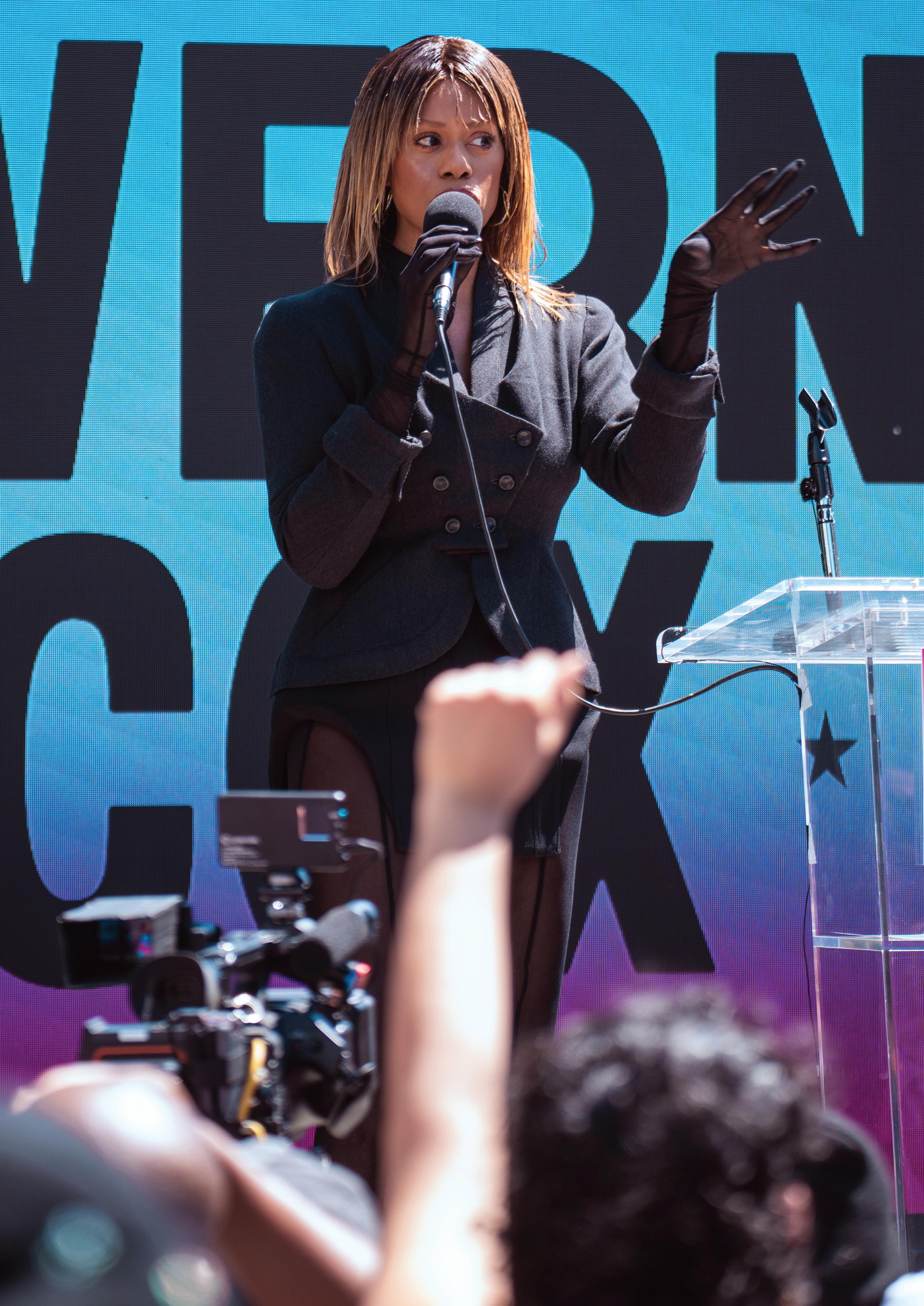
25,000+ calls made across 15+ phone banks
2,901 service providers trained to support LGBTQ+ survivors of domestic violence
2,200+ new voters registered
300+ HIV advocates engaged in legislative and community actions
10 major demonstrations led or co-organized
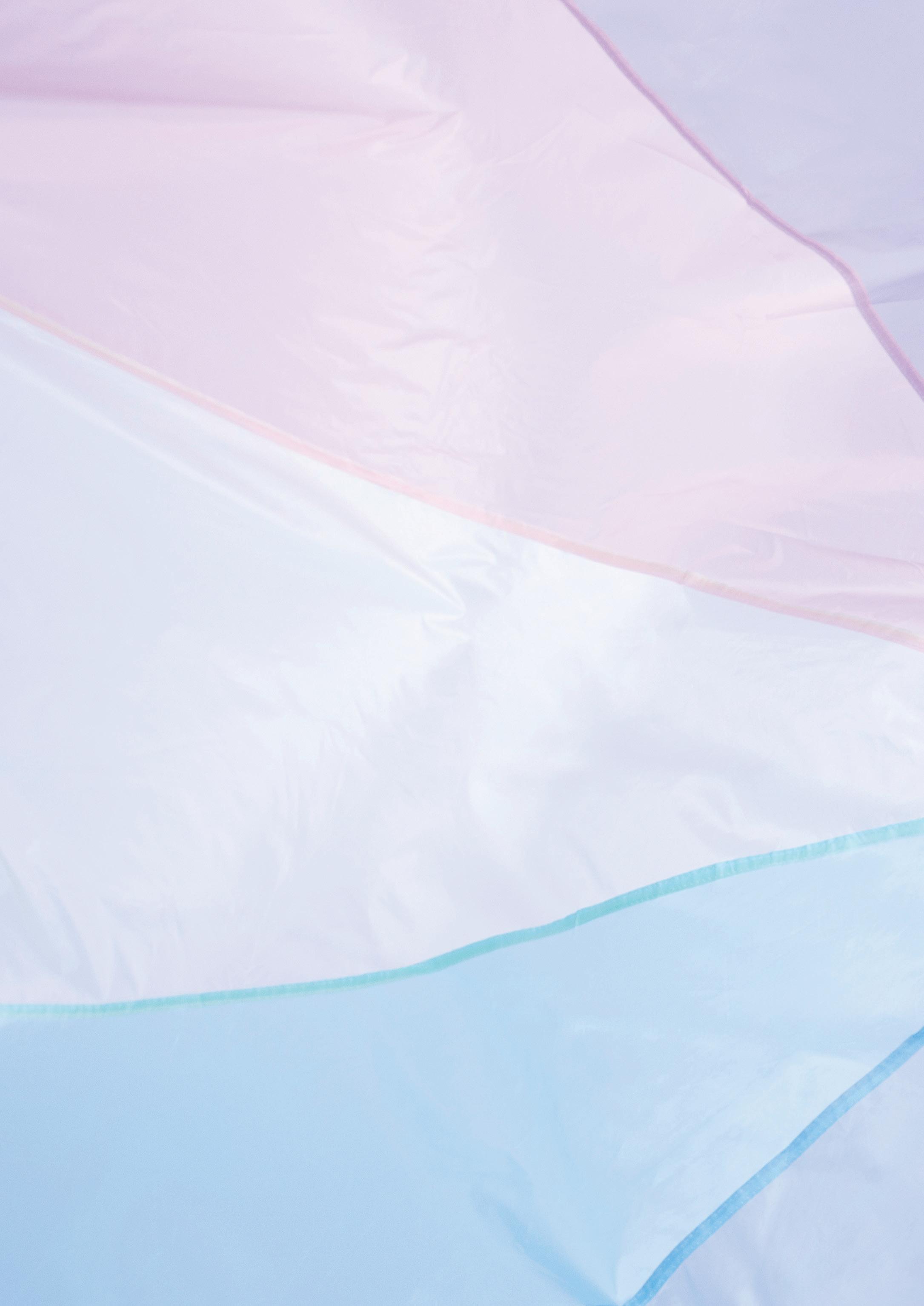
From rallies and protests to housing support and education, the Center is fighting for TGNBI+ youth and giving them the support they need to thrive.
Words by Reid Nakamura
Photos by Maxwell Poth
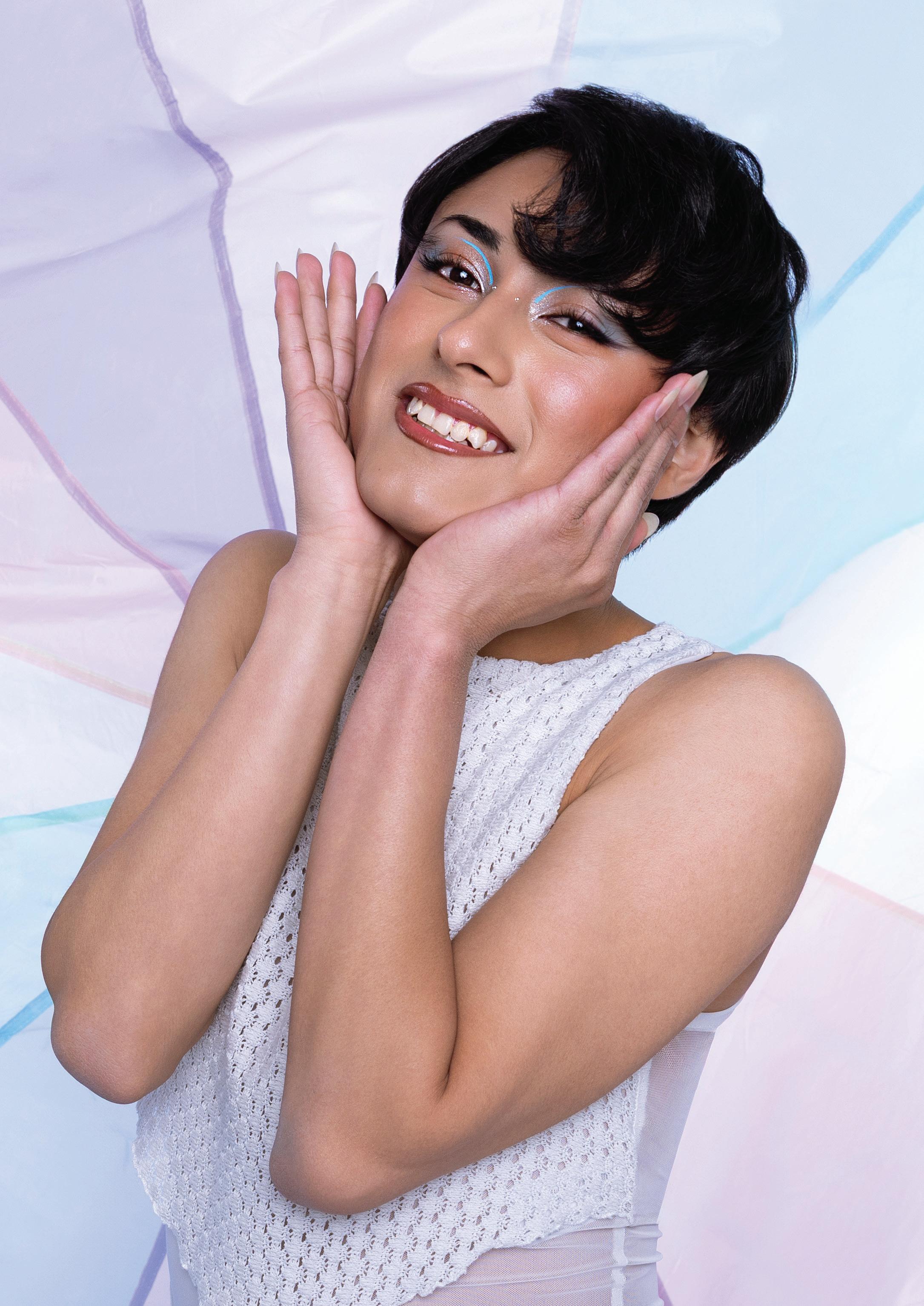
See a youth client's journey in a video by

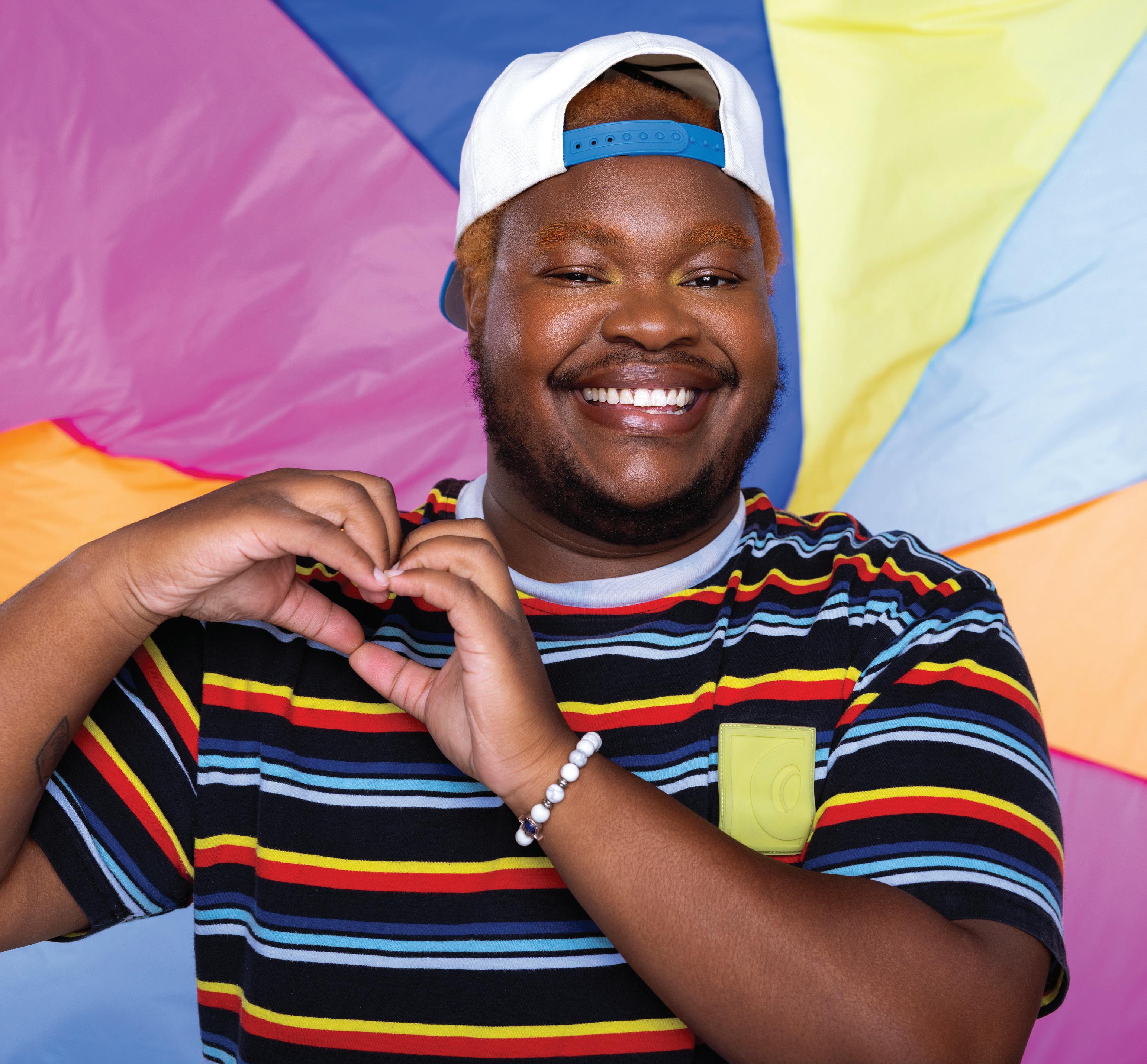
Step into the Thomas D. Kraemer Youth Center on any afternoon, and you’ll hear it: music blaring from someone’s portable speaker, impromptu glam sessions in the courtyard, the ebb and flow of pop culture conversation around lunch tables. These are the sounds of queer and trans young people living their lives—many cobbling together the pieces of their whole selves after losing housing, family, or consistent care.
Liberation isn’t always announced with protest signs or speeches. Sometimes it looks like a young person quietly studying for their GED, or a group of friends helping one another navigate LA’s mass transit system, or someone just thankful to be living life on their own terms. In 2025, as attacks on trans rights surged nationwide, the Youth Center has become a nucleus of community, comfort, and resilience.
For Kole, a trans youth who arrived earlier this year after fleeing a violent home environment, the Center provided a safe landing. “If you’re looking for a healthy, affirming space to be yourself while you’re getting back on your feet, this is the place to go,” he says. Within hours of arriving, he was matched with a case manager, received basic necessities, and placed into emergency housing. From there, he accessed the Center’s full suite of services—from hormone therapy and mental health support to workforce development training and a clothing closet stocked with ensembles that reflected his once suppressed identity.
This year alone, hundreds of anti-trans laws and policies were introduced or enacted, targeting everything from school sports and bathrooms to identity documents and medical care. The federal government sought
to eliminate recognition for transgender people by withholding funding from LGBTQ-serving organizations.
In response, the Center partnered with local and national groups—including TransLatin@ Coalition, Advocates for Trans Equality, and Equality California—to organize the Trans Liberation Now! Rally in April. Nearly 500 supporters gathered at The Village at Ed Gould Plaza on a Saturday morning to demand justice, safety, and liberation for transgender, nonbinary, intersex, and genderexpansive people. Keynote speaker Laverne Cox brought the crowd to its feet, declaring:
“The center of democracy is truth. If voters can begin to understand that they’ve been lied to, maybe they can look to their trans siblings and understand that they were lied to about them too.”
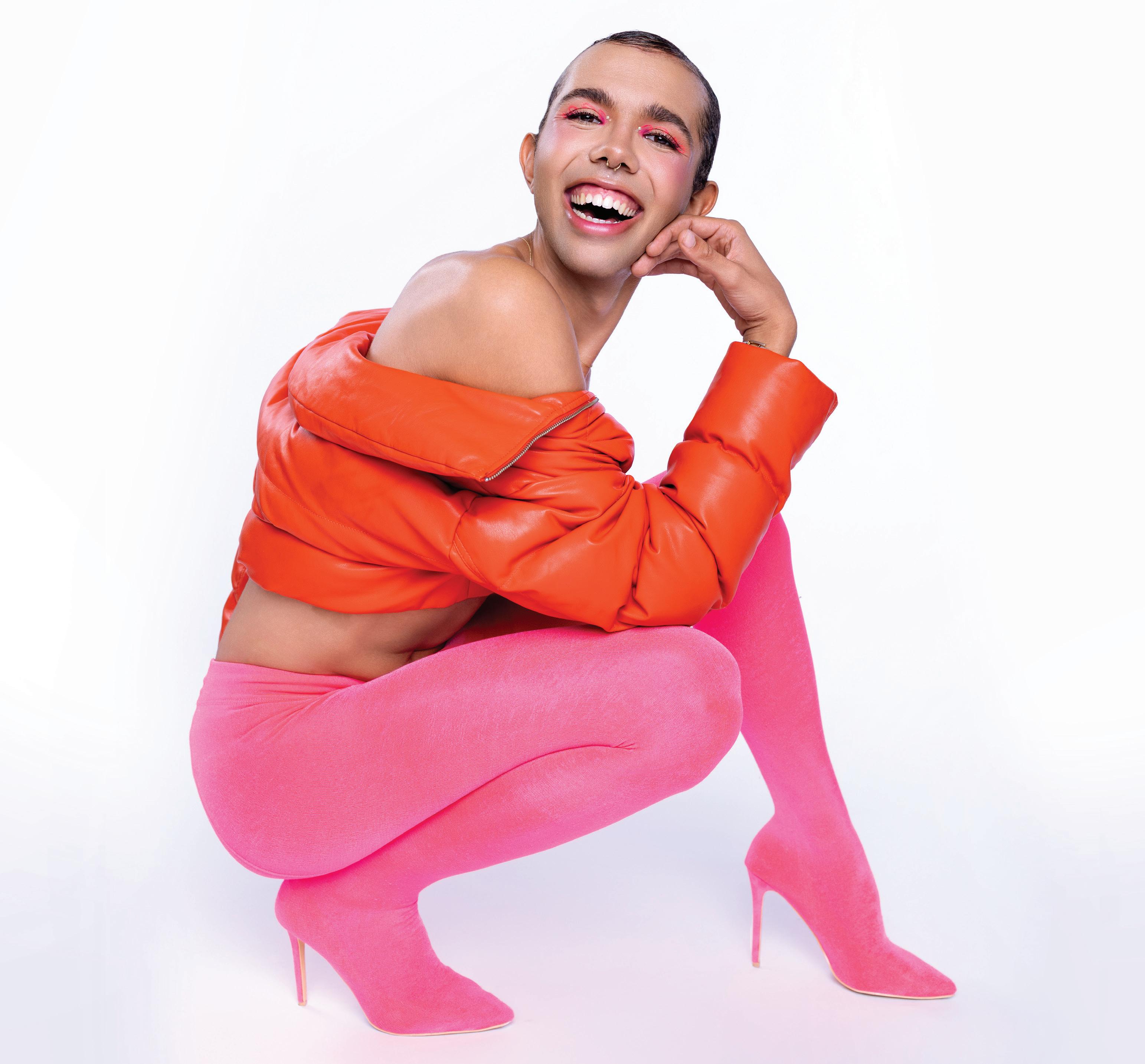
The stakes are real: Research shows that 46% of trans and nonbinary youth have seriously considered suicide in the past year, and 71% experience anxiety or depression—numbers that rise in areas with anti-LGBTQ+ laws.
When Children’s Hospital of Los Angeles abruptly closed its Center for Transyouth Health and Development—the nation’s largest program serving trans and genderexpansive youth—the loss left more than 3,000 young people without care. The Center responded immediately, organizing weekly rallies, bringing several of CHLA’s mental health providers on staff, and along with them a roster of clients, to continue providing life-saving services through Youth Services programs.
The Youth Center operates the nation’s most comprehensive continuum of support
for LGBTQ+ youth. From meals, showers, and clothing to emergency, transitional, or supportive housing, Youth Academy classes, vocational training, and mentorship, every service affirms belonging and builds independence. Every young person who walks through the door is met with the message: your life matters, and your future is worth fighting for.
Five months after first arriving, Kole is shining as a dedicated intern at the Trans Wellness Center in Koreatown and shares an apartment with another youth client. “It’s been an adjustment,” he says, “but I feel happier. I feel like I’m thriving.”
The fight for trans liberation is far from over. But for more than 50 years, the Center has provided care, community, and courage to those who need it most. In every rally, every
clinic, every classroom, and every act of care, we are fighting for the futures we—and our youth—deserve.
82,700+ hot meals served to youth clients
1,845 youth clients served
255 youth clients accessed education services
85% of youth maintain stable housing for six months after graduating from the Center
63 youth and seniors enrolled in our tuition-free Culinary Arts Training Program






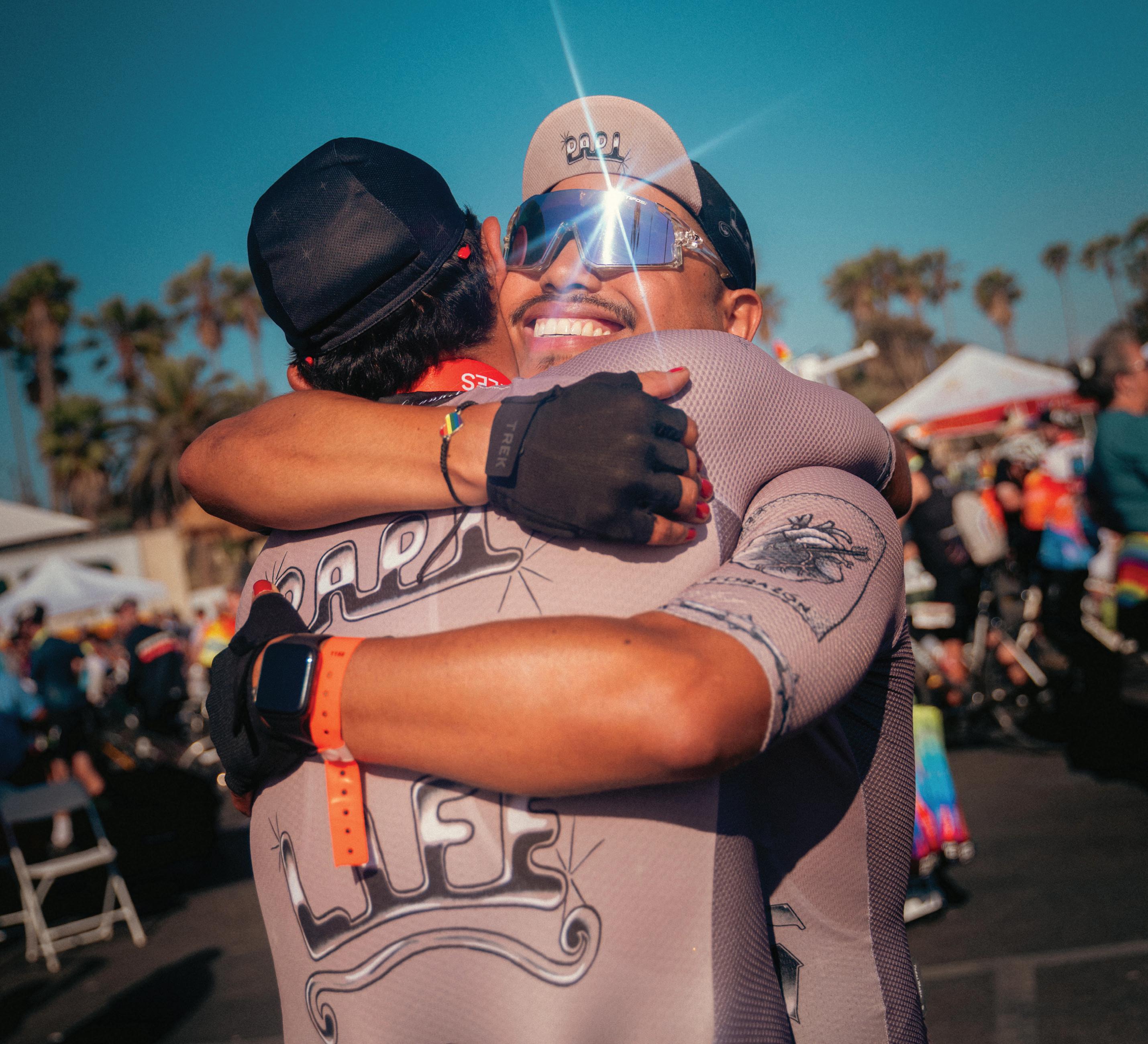
After more than thirty years and raising $300 million, AIDS/LifeCycle completed its final 545-mile journey. Riders and Roadies biked from the bay to the beach for the final time, to honor the memories, the lives lost, and the hope that carried our community through the darkest days of the AIDS epidemic.
The Ride honored love, joy, and the bonds of chosen family. Though the final mile has been crossed, the ultimate finish line—a world without HIV and AIDS—still waits just ahead.
For Melissa Lewis, the Ride was more than a journey—it was transformational. Throughout her years in the AIDS/LifeCycle community, she experienced firsthand how every mile on the road forged connection, resilience, and collective liberation. The Ride
shaped her as a queer person, an activist, and a community builder—lessons she now brings full circle to the Center:
“I’ll never forget the rush of riding through the streets of San Francisco, cheered on by thousands lifting their voices alongside mine," she says. "Every moment on the ride reminded me that our struggles and our triumphs are shared—and that liberation is always a collective, ongoing journey.”
Since then, Lewis has worked in advocacy and mental health, helping millions access care. “At my core, I’ve always been drawn to connection, purpose, and community—the same principles that brought me here to the Los Angeles LGBT Center,” she says. She now serves as the inaugural director of Center Ride Out, a new three-day ride in support of the Center's life-saving work.
On April 24–26, 2026, hundreds of cyclists and volunteers will ride nearly 285 miles from Los Angeles to San Diego to power the Center’s life-changing work. Grants from the funds raised by the event will also be awarded to LGBTQ+ community centers in San Diego and Palm Springs.
Center Ride Out carries forward the love, grit, and family that defined AIDS/LifeCycle’s 30-year legacy—while charting a new path rooted in the Center’s mission. Together, we'll transform endurance into advocacy. "We ride because we center each other," says Lewis. "We ride because we fight for trans rights, housing, and healthcare. We ride for joy, for justice, and for a future built together."
This is more than a ride—it’s a movement. Join us next spring as we pedal toward the liberation we all deserve.
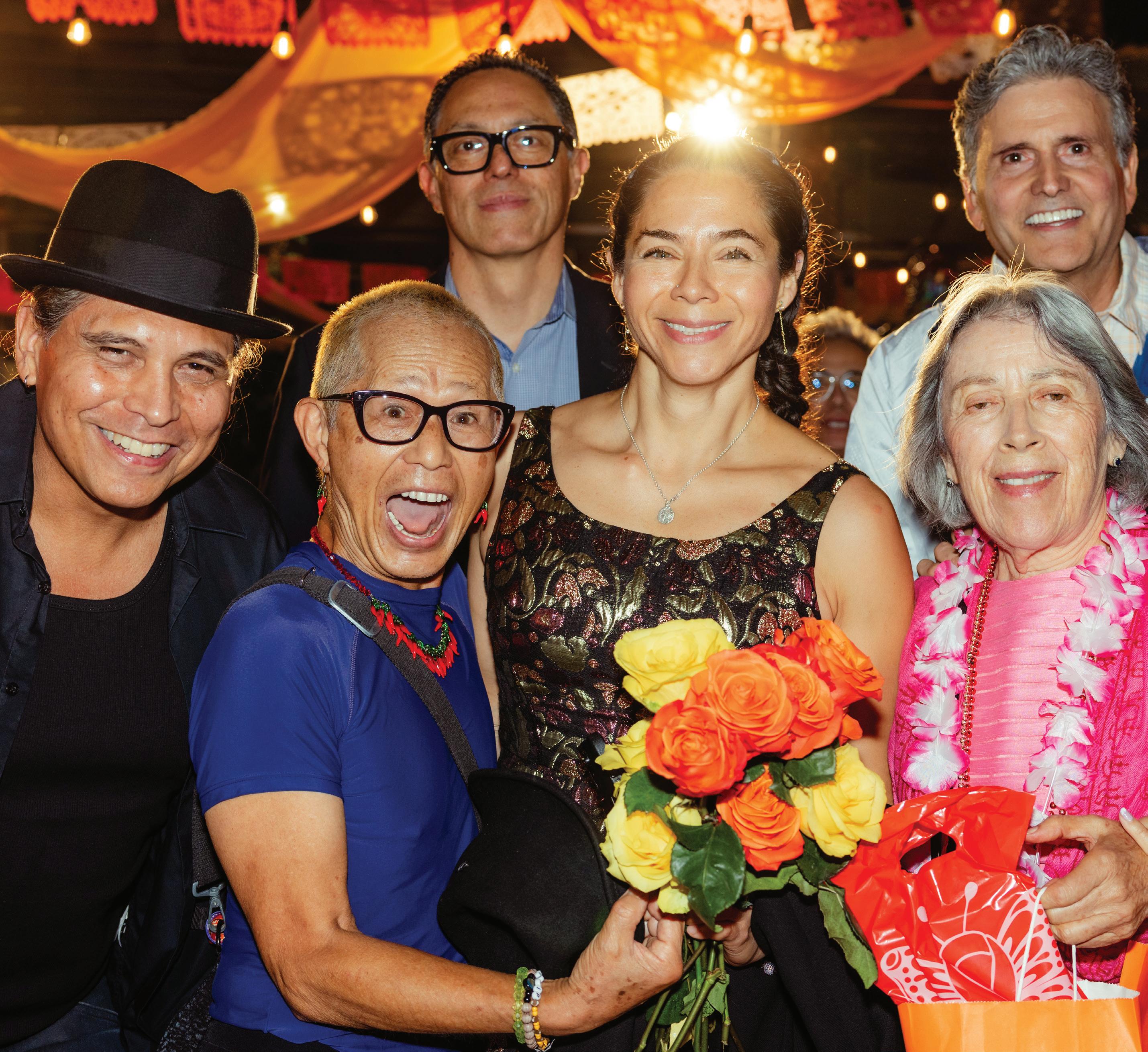
For LGBTQ+ immigrants in southern California, living through the second Trump administration is a waking nightmare. At a Know Your Rights presentation hosted by the Center earlier this year, an undocumented mother with a disabled daughter asked a question that has haunted Sol Davis, acting director of Legal Services, ever since. The mother wanted to know what would happen to her child when Immigrations and Customs Enforcement (ICE) agents showed up at her door to deport her.
“It was heartbreaking to hear this woman talk about not if she got taken but when,” Davis says. “The community is afraid for themselves, for their daughters, their sons, their husbands, and their wives. They’re afraid to walk out their door.”
Advocating for vulnerable populations as their basic rights are being stripped away is a constant challenge, but it’s a battle the Center is ready to fight. In addition to public education town halls on the rights of immigrants and undocumented people under Trump, the Center’s Immigration Law Project offers free legal representation for individuals seeking naturalization, permanent residency, work visas, or assistance with asylum claims. Its services include everything from accompanying clients to court hearings to providing Spanish-speaking mental health support.
While the Center has decades of experience in offering these resources, constant rule changes from the Trump White House have vastly complicated its work. Under previous administrations, federal authorities allowed attorneys to file incomplete immigration
petitions, but that option was eliminated under Trump. Without the ability to backfill paperwork with supporting documents, which can take several weeks to gather, it’s much harder for advocates to meet fastmoving application deadlines on behalf of their clients, Davis says. Attorneys can no longer count on the established rule of law to determine which way cases will go.
“We don’t know what this administration is going to do next,” he says. “It’s a day-to-day question mark. In the past, we had a certain degree of confidence in the way that a case would proceed through the immigration process. Since this administration has taken power, a lot of those systems have changed.”
The Center has witnessed a surge in demand for its services since Trump’s second inauguration in January, and staff
Photo by Kane C. Andrade
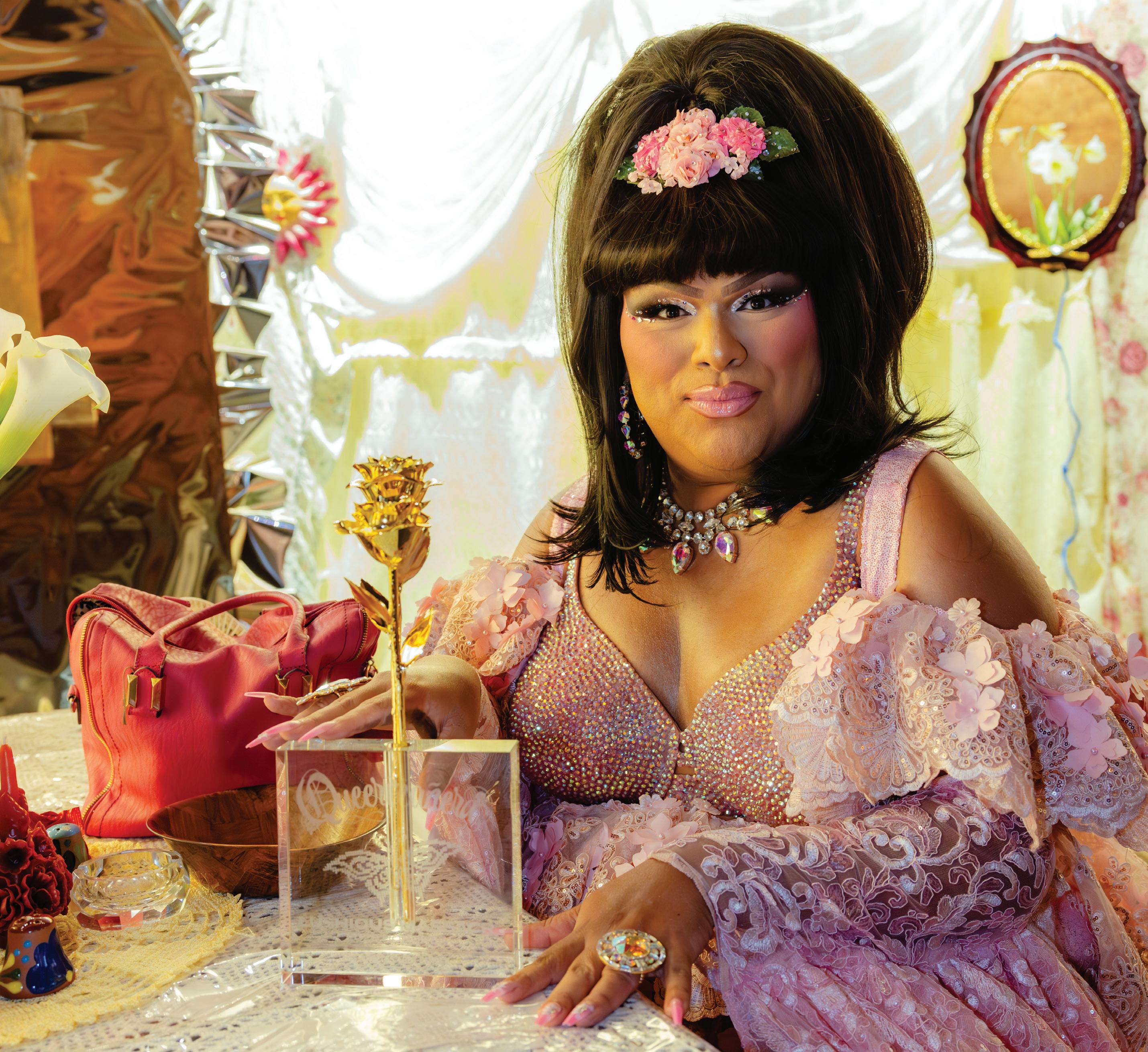
members do not expect that tide to slow. Mónica Valencia, an attorney manager stationed at Mi Centro—which celebrates its 10th anniversary this year—says that family separation has become pervasive among the Boyle Heights population that the Center serves. Valencia has been fielding an influx of calls in recent weeks from people asking for help in finding family members kidnapped by ICE and schools who need training in how to better support their grieving campuses. Many students, she says, began the school year without parents at home to look after them.
As a Latine person herself, watching the horrors unfold all across the country has been devastating for Valencia. The violent ICE raids targeting Chicago over the past month included an assault on a South Shore apartment complex, during which children
were reportedly taken from their beds at 1 a.m. and zip tied. But what keeps her going, even at the lowest moments, is seeing the Center strive to meet the needs of her community. That work begins simply by listening to their voices, she says.
“They’re not powerless,” she says of the Center’s clients. “We’re not here to empower them. We’re here to build platforms of change so that people can rise up. We are resilient, and there’s joy in our resilience. We always find a way to push through—not around, not over, not under— but push through.”
This year’s Queerceañera, the Center’s signature event spotlighting queer Latine Angelenos, honored drag sensation Lushious Massacr (above) under the theme Mariposas Sin Fronteras. Inspired by the
monarch butterfly’s migration across borders, Queerce was both a celebration and a statement—uplifting the Latine community’s ongoing fight for freedom and reaffirming that love, identity, and community know no borders.
1,718 individuals served via Mi Centro
600+ LGBTQ+ immigrants served 500 name and gender marker changes processed 350+ immigration petitions filed
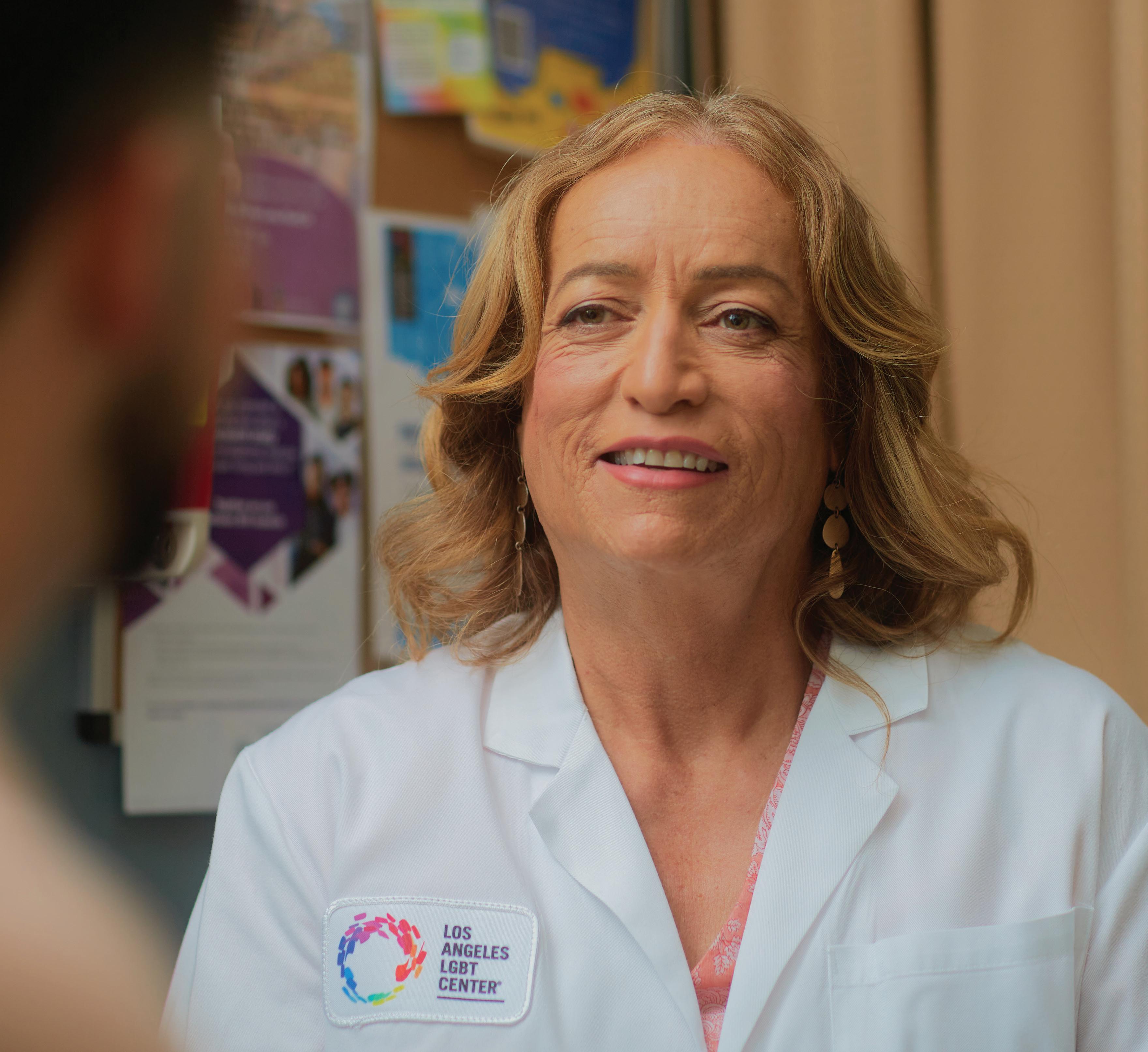
This May, the Center unveiled the newly renovated first-floor clinic at the McDonald/ Wright Building, deepening our commitment to increasing access to high-quality care. The updated space, funded by two preTrump-era federal grants, features a more efficient layout, expanded exam rooms, and new lab facilities designed to reduce wait times and make visits more seamless for patients.
The building itself holds deep significance in the Center’s history, having served as the organization’s headquarters for over two decades. It now houses the bulk of the Center’s health services, including the Audre Lorde Health Program, a full-service pharmacy, and the Jeffrey Goodman Special Care Clinic—one of the few Federally Qualified Health Centers specializing in primary care for LGBTQ+ patients
and people living with HIV.
As a leader in LGBTQ+ health, the Center continues to expand access to affirming care—not just in central Los Angeles, but across the city.
At Center South in Leimert Park, we’ve continued to broaden our health services offerings to meet the needs of Black and Latine LGBTQ+ communities in South LA. Even as proposed federal and state cuts threaten millions in HIV prevention and care funding—the Center is working tirelessly to ensure that testing and treatment services go uninterrupted.
We’ve also welcomed more than 40 former patients of Children’s Hospital Los Angeles into our gender-affirming care practice, ensuring continuity of care for young adults
following the closure of the hospital’s transgender health program earlier this year.
The Center has a long history on the frontlines of caring for the health of our community. Through innovation and advocacy, we continue to lead the fight to ensure that all LGBTQ+ people have access to the high-quality, compassionate care they deserve.
130,000+ prescriptions filled
mental health visits
primary care visits
HIV specialty care visits

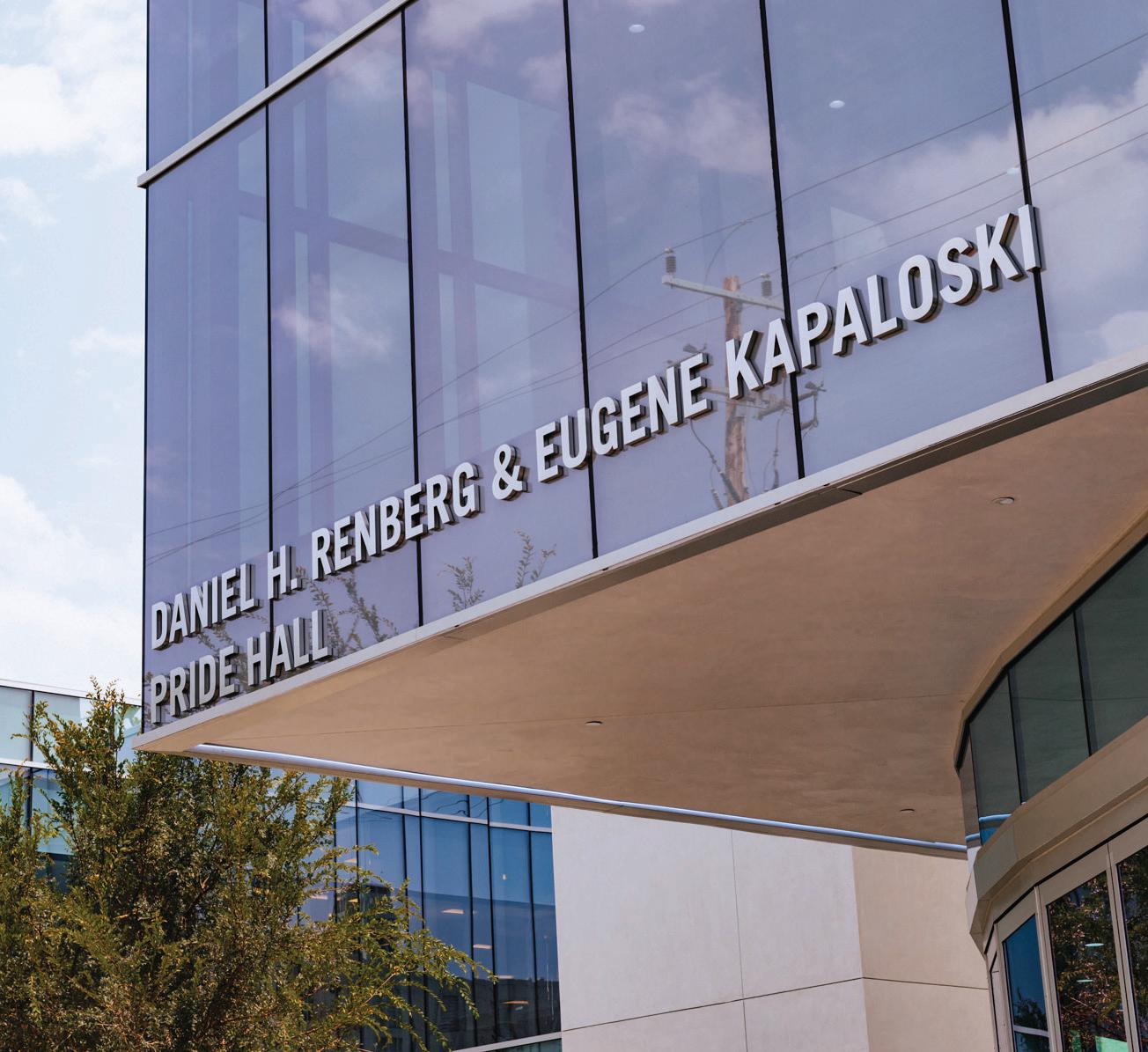
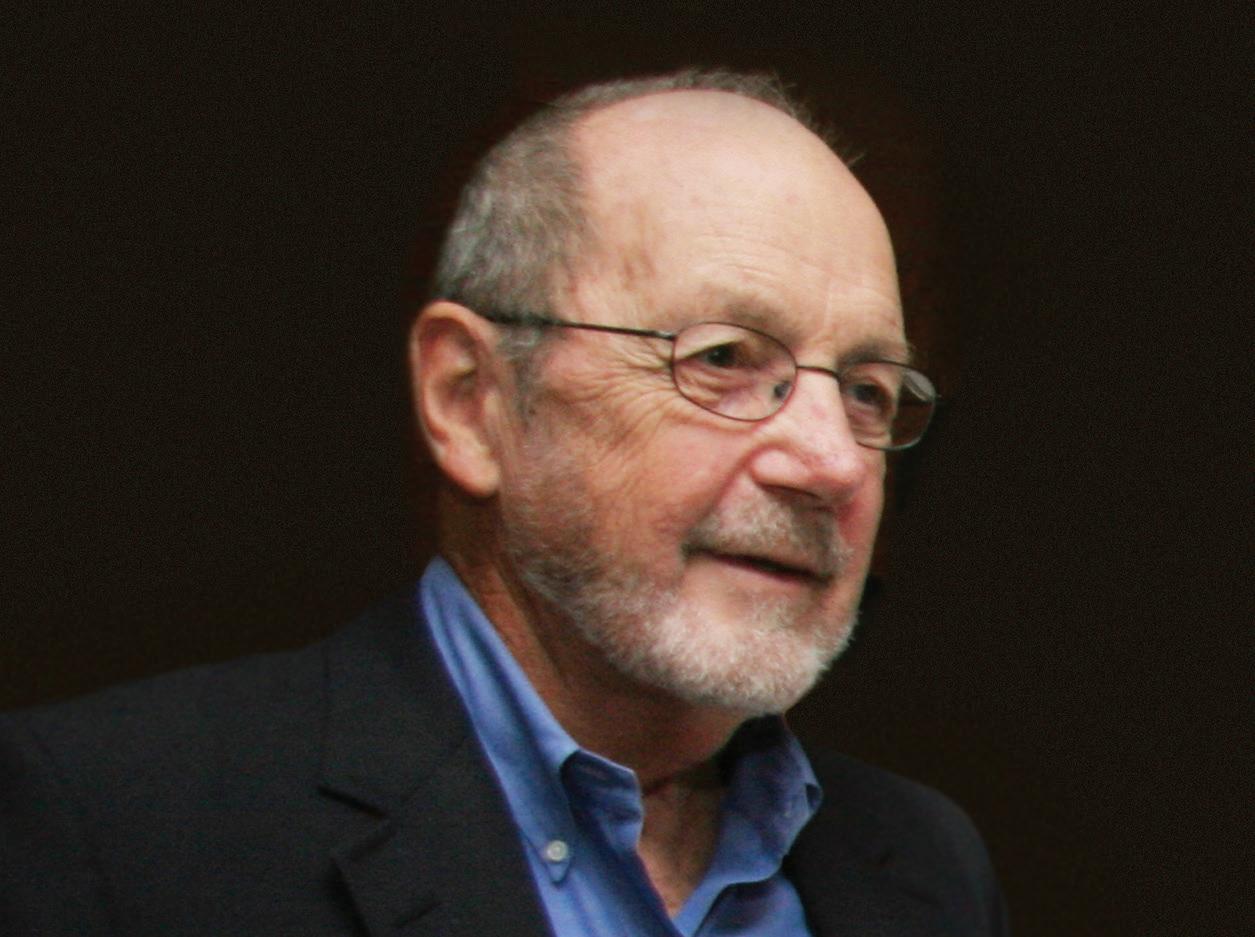
Beloved Center supporter, Eugene (Gene) Kapaloski, passed away peacefully at his home on August 13, 2025—just weeks before his 94th birthday.
For more than five decades, Gene and his late husband, Dan Renberg, helped build the Los Angeles LGBT Center and, in turn, our movement. Together, they
generously contributed to the Center’s capital campaign to open The Village, and Gene later became a lead donor to the Anita May Rosenstein Campus. Pride Hall, the campus’s community gathering space, now bears his and Dan’s names.
Their transformative philanthropy allowed the Center to expand its footprint and our impact on the lives of the clients we serve. More recently, this included Gene’s generous support of the Center’s Culinary Arts program—believing that we, as the LGBTQ+ community, must care for our own.
Reflecting on his friendship with Gene, CEO Joe Hollendoner said, “Over the past four years, I had the pleasure of getting to know Gene. What began as casual conversations about the Center soon deepened into something much more personal. As my
work grew more challenging amid the rising political attacks on our community, Gene became a lifeline. Always kind, always funny, and always asking how he could do more to help, Gene was more than a Center donor— he became part of my chosen family.”
Gene and Dan’s legacies live on—in the joy that fills Pride Hall, the applause that echoes through the Renberg Theatre, and the LGBTQ+ seniors who find nourishment and support when they need it most. And as members of the Center’s Circle of Life—our legacy giving society—their generous estate gift will help ensure our life-saving work continues for generations to come.
To learn more about Circle of Life, contact Joey Wasserman, Senior Director of Philanthropy at joey.wasserman@ lalgbtcenter.org.
Everyone deserves health, housing, and hot meals—not just during the holidays, but all year long. For nearly 60 years, we’ve been showing up together, with love and courage, to deliver these vital services to LGBTQ+ people who need them most.
Your gift today will provide immediate relief for those struggling with:
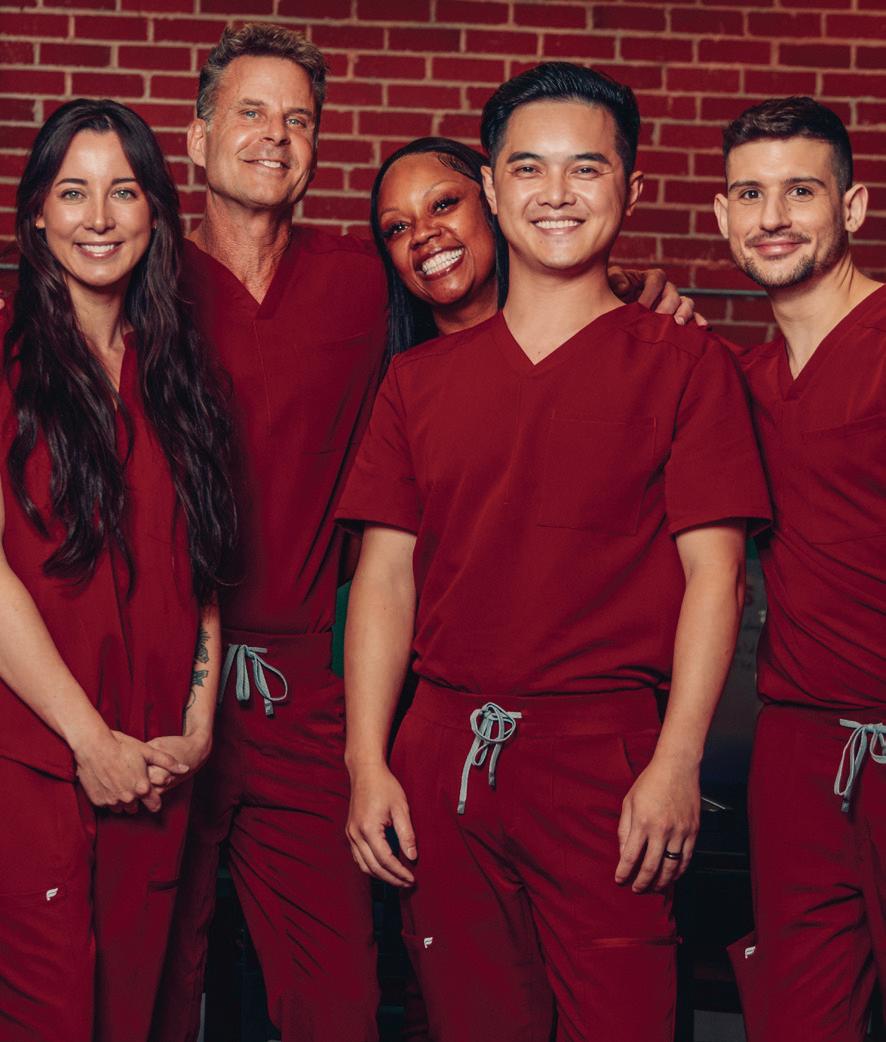
From primary and mental health care to our renowned HIV services, we help our community thrive. Our providers know that love, administered through accessible and affirming care, has the power to heal what the world tries to break.
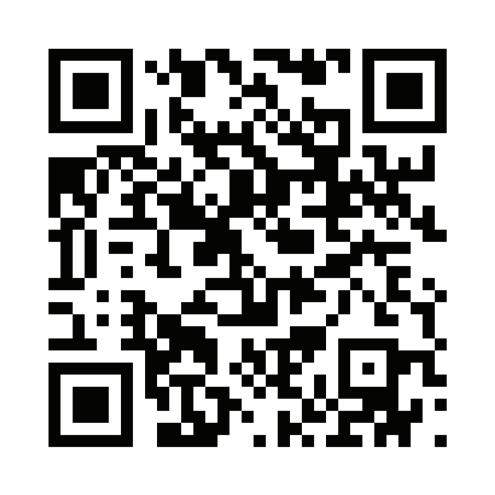
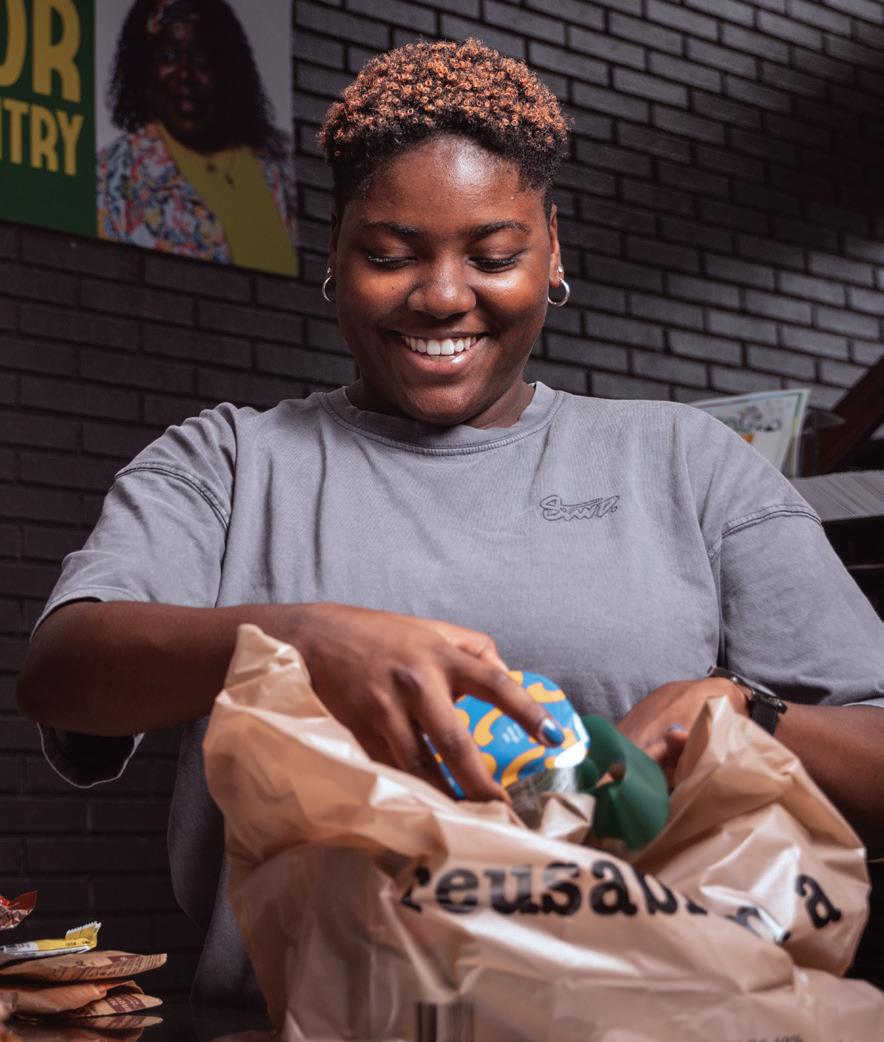
Meals made with love feed both body and soul. Through our culinary training programs, Pride Pantry, daily hot lunches for seniors, and more, we serve over 130,000 meals each year— nourishing our people and fighting food insecurity across Los Angeles.
Your gift makes a difference:
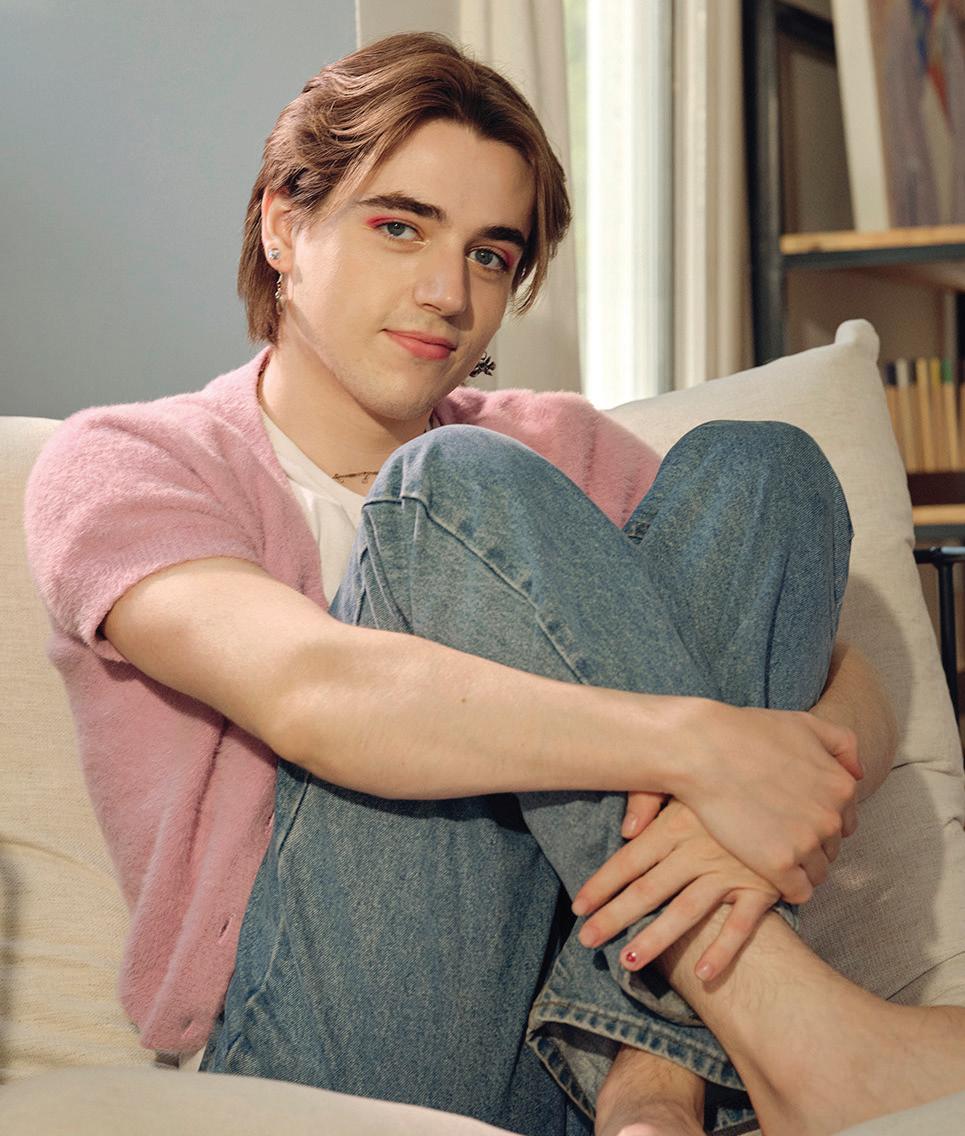
For hundreds of LGBTQ+ youth and seniors, the Center’s housing programs are more than shelter— they’re home. Love is at the center of every space we create, where safety and dignity become the foundation for new beginnings.
• $13 delivers a meal to one homebound senior
• $50 provides a night of safe shelter for one young person
• $200 covers the cost of one mental health visit
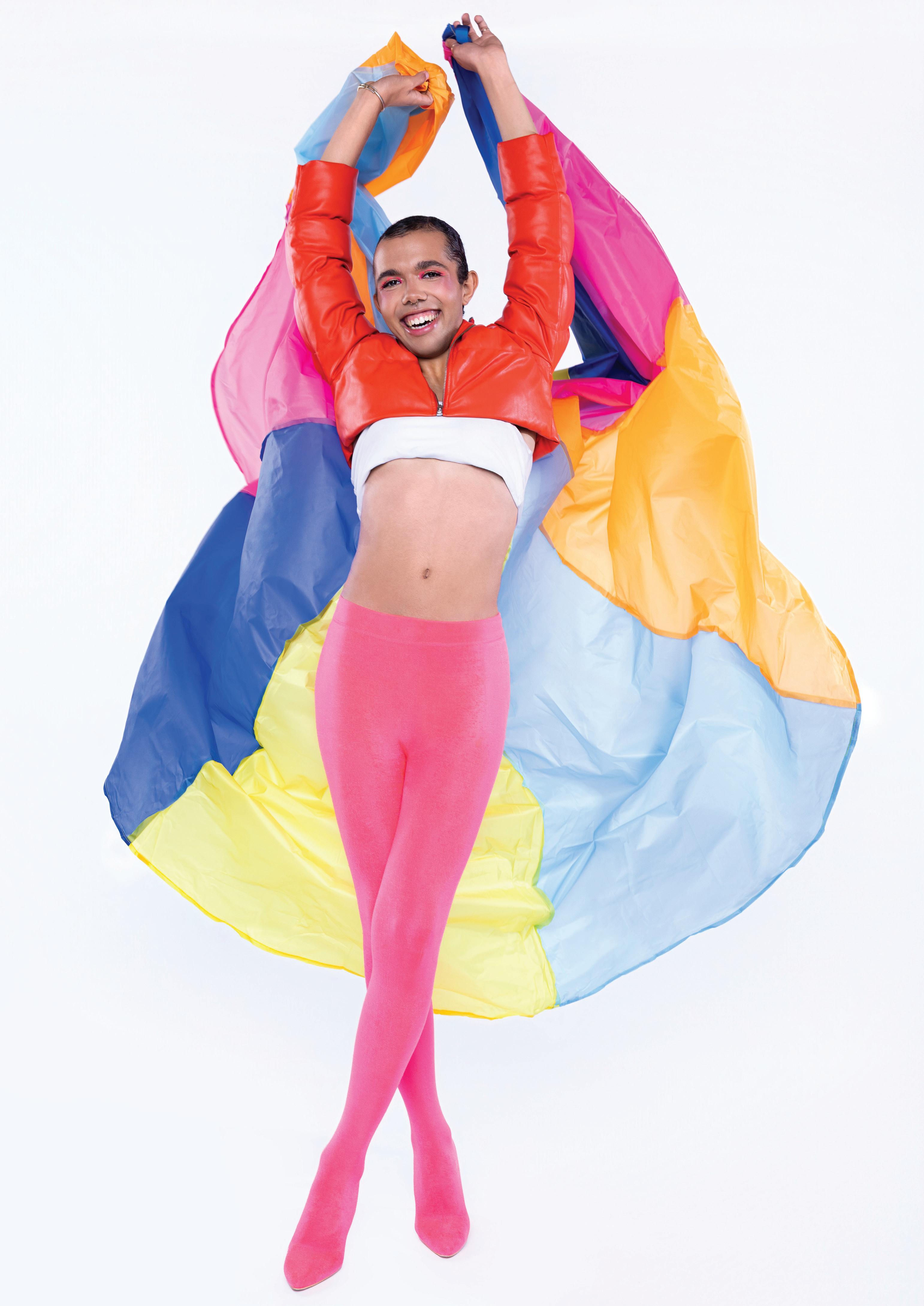

The life-saving work of the Center is only possible because of supporters like you. Donate today.